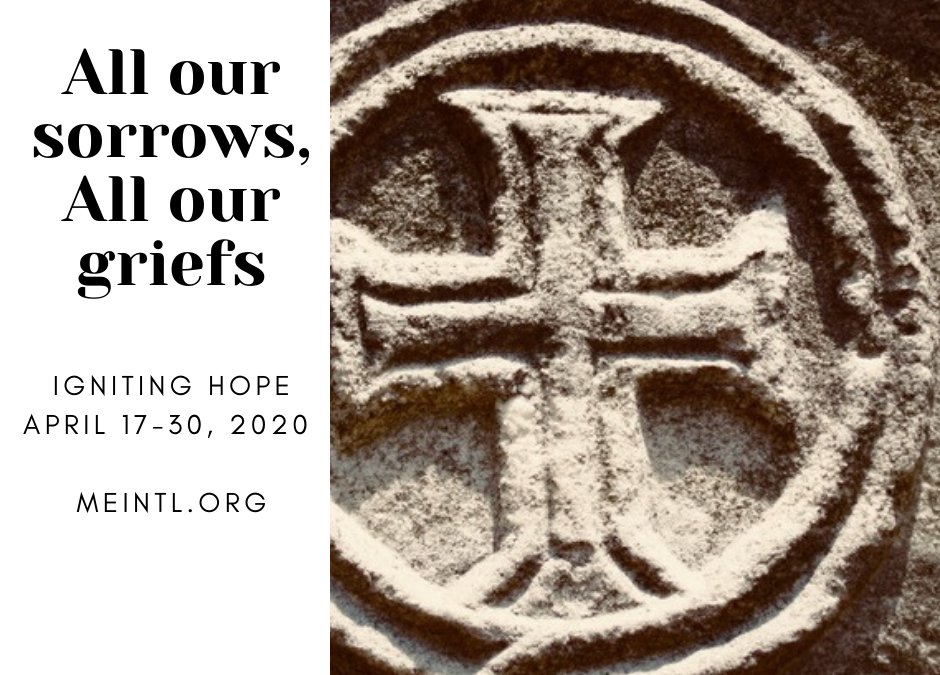In a recent article on creativity during times of crisis, Bas Korsten (Global Chief Creative Officer at Wunderman Thompson) stated: “Human creativity is built on our brain’s diffuse attention, inefficiency and lack of focus and can actually help get us out of this mess.” (Korsten, Bas. How the Covid-19 Crisis Will Lead to a Spike in Creativity. Adweek.com 3/27/2020.)
We know from brain science that under stress, our brains are less focused, our attention is scattered, and we are less efficient in many ways. In other words, if Korsten is correct about creativity, this time of COVID crisis should produce a high yield of creativity and innovation. The flip side of attentional diffusion can also be true—hyper-focus. And perhaps it’s this hyper-focus that is allowing scientists around the world to innovate in finding solutions for the treatment and prevention of the Coronavirus. They are singularly focused and united as a community of technological and scientific Creatives.
Similarly, people are finding new aspects of creativity as they cook, as they write stories and poems, paint, compose, sew, and choreograph. The very dismantling of their normal structures and controls is allowing them to engage with a new space of mind. As they shrink into social-distancing and isolation, they are finding a new open freedom from which to create.
But for others, there is despair, weariness, and a loss of creativity. They slug through the hours of the long days. Creativity and fresh ideas seem far away. They feel flat, depressed, demotivated—just drifting in the doldrums. Without direction or creative thought. Exiles from the safe and familiar—in a strange new land of loss created by COVID-19. A loss of creativity flowing from a loss of connection, from deep and empty spaces.
The children of Israel, on more than one occasion in history, also found themselves exiles in strange lands. With a searing loss of connection to all that was familiar. In particular, in 586BC, the Babylonians swept into Jerusalem, slaughtering adults, children, and the infirm. Jerusalem and the Temple were utterly destroyed. Her people were brutally dragged to Babylon, where they languished in captivity. And from this horrific time of exile, Psalm 137 was written:
Along the banks of Babylon’s rivers
we sat as exiles, mourning our captivity,
and wept with great love for Zion.
Our music and mirth were no longer heard, only sadness.
We hung up our harps on the willow trees.
Our captors tormented us, saying, “Make music for us and
sing one of your happy Zion-songs!”
But how could we sing the song of the Lord
in this foreign wilderness?–Psalm 137:1-4 (TPT)
They hung up their harps on the willow trees. In such despair and mourning, they had no voice. No place from which to engage with God in creative song or worship.
ACTION: Imagine yourself sitting on the banks of this river in Babylon as described in Psalm 137. Take a deep breath in through your nose. What do you smell, what do you hear, what do you feel? Perhaps the wet mud along the riverbanks, the sounds of the mocking Babylonians, the rough texture of the grass you’re sitting on. Notice the harps hanging in the trees around you. Hear the anguish and sadness of the people sitting under them. Now, take a moment to notice within yourself: where are the places where your creativity has languished in this time of COVID captivity? Where have you “lost your song”? Can you name the tree on which you’ve “hung up your harp”? The tree of grief? The tree of resentment, fear, anger, hopelessness? Read Psalm 40: 1-3. What promises or words are God bringing to your attention? Notice, too, what you are feeling as you read Psalm 40. Share your thoughts and feelings with God. Is there a “new song” of creativity He is inviting you to explore? Make a note of that—don’t judge it, just pay attention to what that stirs in you. What would you like to ask Him for as you consider this word creativity?


